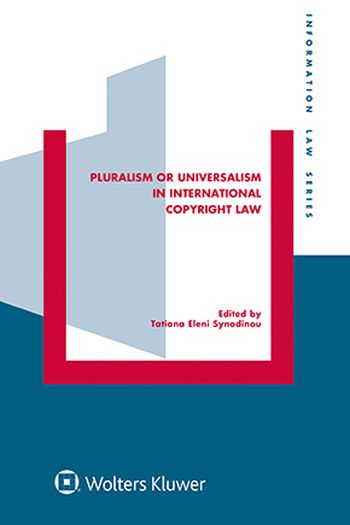
Pluralism or Universalism in International Copyright Law deals with the contemporary evolutions of copyright law under a comparative and international copyright law perspective. In a world where powerful intermediaries such as Google and Facebook are de facto regulators of the communication of copyright-protected works, the democratization of access to content has both substantially expanded the availability of new markets and dramatically increased copyright infringements. Does this mean that the long-sought ideal of a “universal” copyright regulation, which would harmoniously combine effective protection of intellectual creations with public interest goals, is a lost cause? Taken together, the contributions to this insightful and thoroughly researched book suggest that despite the prevailing labyrinthine mosaic of divergent national responses to fragmentation at international level, the foundations of a universal approach can be found in the interaction of regional, national and international copyright law instruments when responding to current and emerging technologies.
What’s in this book:
Emphasizing the adaptation of copyright law to the needs of the information society, this volume provides critical approaches by leading copyright scholars on whether pluralism or universalism is the appropriate path to follow for the development of international copyright law. The authors deal with such issues and topics as the following:
How this will help you:
As a comprehensive analysis of how core copyright law concepts and principles function in today’s fragmented copyright legal system, this book has no peers. Its detailed treatment of numerous specific instruments and regimes, as well as its insightful approaches to the future of international copyright lawmaking, will prove to be of immeasurable value to lawyers, judges, policymakers, academics and researchers working in the field of copyright law.